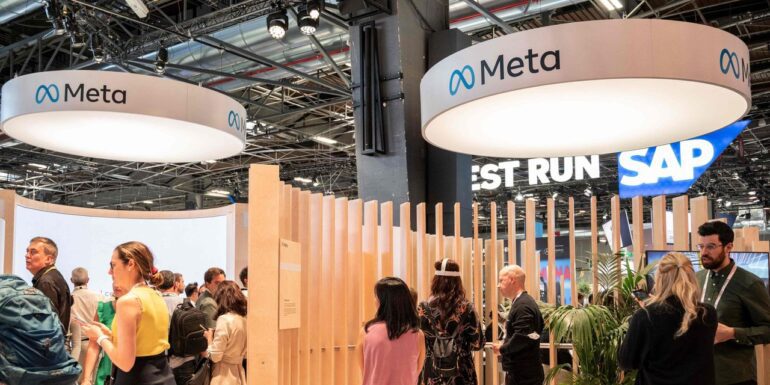TL;DR:
- Meta, led by CEO Mark Zuckerberg, has fallen behind competitors in AI due to layoffs and the departure of a significant number of researchers.
- The company’s focus on generative AI has shifted away, despite employee recommendations, leading to difficulties in developing large language models.
- Meta faces challenges as it strives to regain its position in the AI market and retain top talent.
- Confidence in Meta’s leadership among employees is low, as indicated by an internal survey.
- The release of ChatGPT by OpenAI and the emergence of AI competitor Midjourney have further impacted Meta’s standing.
- The company aims to improve efficiency and has undergone significant downsizing and project closures.
Main AI News:
Meta, once a frontrunner in the field of artificial intelligence (AI) under the guidance of CEO Mark Zuckerberg, is now grappling to keep up with its competitors due to recent layoffs and the departure of numerous researchers. The company’s future in the rapidly evolving landscape of AI appears uncertain, as it has lost a significant portion of its AI researchers—around a third of the workforce—due to burnout and a diminishing belief in Meta’s potential, according to a report by the Wall Street Journal.
Back in 2013, Zuckerberg enlisted the expertise of Yann LeCun, widely regarded as an AI “godfather,” to lead Meta’s endeavors in advancing AI technology. However, the company faced a setback when it was not included in the guest list of the White House’s summit of “companies at the forefront of AI innovation.” Nevertheless, Meta is currently striving to rectify past mistakes that diverted its attention away from generative AI, despite employees urging the company to embrace this new direction, as per the WSJ report.
Sources cited by the WSJ indicate that under LeCun’s leadership, AI researchers encountered difficulties in advocating for the development of large language models that enable groundbreaking programs like ChatGPT. Nonetheless, during a recent town hall meeting with employees in June, Zuckerberg lauded Meta for its significant advancements in the field of AI, stating, “In the last year, we’ve witnessed remarkable qualitative breakthroughs in generative AI.“
Furthermore, Meta has experienced a notable exodus of researchers who cited burnout and skepticism regarding the company’s AI future, according to the WSJ report. The departure of even more employees occurred following OpenAI’s release of ChatGPT in November, which intensified the race for AI innovation. Additionally, within just one year of its launch, another AI competitor called Midjourney gained attention through the creation of viral fake images featuring Pope Francis and Donald Trump.
In an internal survey conducted between April 26 and May 10, only 26% of Meta employees who participated expressed confidence in the company’s leadership. In response to these challenges, Zuckerberg labeled 2023 as the “year of efficiency” in a February earnings release. Meta underwent a substantial downsizing in November, with over 11,000 employees being laid off, and continued to shutter various projects in subsequent months.
Conclusion:
Meta’s struggle to keep up with AI innovation and the loss of a substantial number of AI researchers have significant implications for the market. The company’s diminishing position poses an opportunity for competitors like OpenAI and Midjourney to gain a stronger foothold and potentially attract talented researchers. Meta’s need to rectify past missteps and regain employee confidence will require focused efforts to drive innovation and deliver breakthroughs in the evolving field of artificial intelligence. The market dynamics are likely to shift as Meta’s competitors seize the opportunity to take the lead in AI development and shape the industry’s future.

